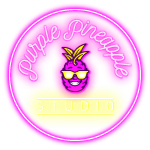In this article LetsMoveIndonesia’s Legal Expert Mega Rizkiani explains to us the meaning of a Trademark, the advantages of having a Trademark, the process involved in obtaining one and Mega examines one of the most well-known Trademark disputes in Indonesia, which involved global furniture brand IKEA & explains what really happened during this famous spat.
Firstly though, lets clarify – what is a Trademark
According to the Indonesia Law of Trademark Number 20 Year 2016, the meaning of Trademark is a brand which used on goods traded by someone or some people collectively agreed or legal entity to differentiate with other. Generally, Trademark registration to protects names, words, slogan and symbols that identify a business and for distinguishes from others brand. Protecting trademarks is an investment in customer goodwill, leading to greater customer satisfaction and higher sales.
Upon your trademark has been registered, you will be able to use ® symbol and another common symbol associated with trade mark is ™ in order to demonstrate the products and enforceable by law. It also serves as notice to competitors that you are serious about protecting your trademark rights. Registering your trademark grants you protection and the exclusive right to use your trademark in connection to the products and services for which you have registered in a determined country or territory. The trademark application is to be submitted to the Directorate General of Intellectual Property Rights, Ministry of Law and Human Rights of the Republic of Indonesia.
Advantages of Trademark Registration
- Protect against registration of similar marks.
- Discourages others to using similar trademark
- Serves as evidence of the validity and exclusive ownership of Trademark
- Grants the right to use the ® symbol when the mark is used for the goods and services listed in the registration
- To provide facilitating protection of the trademarks as business expands
Process of Trademark Registration
1. Filling of Application
You should file your application with the meaning of trademark (if any), details of colour and picture and translate the meaning of trademark into Bahasa if the trademark in English.
2. Administrative Examination
The Ministry of Law and Human Rights will check whether the application will meet the requirements or not. If the applicant does not meet the requirements, the applicant has an additional 2 months to successfully edit the application.
3. Publication
Your Trademark will be published by the Ministry of Law and Human Rights onto their website to see whether there will be any opposition from Others. If there is any opposition, the Applicant can issue a counter statement to reject the opposition. If there is no any opposition, the Applicant can continue the process into the next steps.
4. Examination
If the Ministry of Law and Human Rights refuse the Trademark Registration, the Applicant can respond against the rejection around. After that, the Applicant should be wait around 3 months to get approval or refusal from the Ministry of Law and Human Rights.
If the registration is approved by the Ministry of Law and Human Rights, the process can continue to the next stage.
5. Notification on Issuance of Certificate
The Ministry of Law and Human Rights will give the notification for issuance of Certificate – whether the Certificate will be issued or not.
6. Issuance of Certificate of Registration
The Trademark Certificate will be issued by the Ministry of Law and Human Rights.
Validity
A registered Trademark can have legal protection for period of 10 years to the date of receipt of the registration of the Trademark concerned. The Trademark can be renewed within 6 (six) months before expiry date of trademark registration. The late filing of renewal application may be filed within 6 (six) months grace period after the expiry date of registration by paying a penalty.
Prohibitions of registering a Trademark
- Contrary to the Ideology of the State, Legislation, Morality, Religion, Public Order.
- Only mention about the products but not mention Class clearly.
- Contain or mislead the public about the origin, quality, type, size, purpose of the goods and/or services, or contains the name of a protected plant variety for goods and/or services.
- Contain information which does not comply with the quality, benefits of goods and/or services.
- Does not have any distinction from others Trademark.
- Common name and/or general public property.
Famous IKEA Trademark Case – What really happened?
There have been a number of Trademark disputes within Indonesia whereby International brands have found themselves fighting with local companies to defend their well-known Trademark, but none in recent years have captured the attention as much as the famous IKEA dispute a few years ago. So, what really happened?
IKEA registered its trademark in Indonesia in 2006 in class 21, covering household and kitchen utensils and in 2010 in class 20, covering furniture. According to the local law and regulations, a trademark can be cancelled if it is not used for at least three consecutive years from the date of registration.
In 2013, PT Ratania Khatulistiwa, an Indonesian company registered its IKEA trademark in the same classes. According to the local company, IKEA is used as an acronym of the following words “Intan Khatulistiwa Esa Abadi,” which refer to rattan, a material that is used in furniture production.
In 2014, the Indonesian company filed an application to the central Jakarta district court, while the first IKEA retail store in Indonesia was under construction. Then, the Central Jakarta District Court as well as the Supreme Court ruled in favour of the PT Ratania Khatulistiwa, ordering IKEA to stop using its own name. IKEA lost the right to use its own name in Indonesia on the ground of non-use.
Supreme Court ruling issued last year only invalidates two IKEA trademarks under class 20 and 21 for furniture products, registered in 2006 and 2010, because they were not used in the three-year window post registration with the Intellectual Property Rights Directorate General.
In conclusion – IKEA lost a trademark case, but IKEA did not lose their right to the IKEA trademark all together. The case at hand only relates to a (small) number of registrations for which IKEA’s opponent an Indonesian rattan company claimed that those registrations were never used within the statutory period of 3 years after registration.
Overall, it is important to note that a company’s reputation does not guarantee the owners worldwide legal rights to do as they will. In addition, it is important to ensure that non-use of a Trademark may result in its irrevocable cancellation.
How much does it cost and how long does it take?
Overall, the process takes about 2 years.
The LetsMoveIndonesia price to process your Trademark is 5 Million IDR. There is an additional cost of 2 Million IDR payable to the Indonesian government for each logo/class submitted.
If you would like to protect your business or need help registering your own trademark – then feel free to contact Mega, either by T: +62 21 300 297 27 E: info@letsmoveindonesia.com or visit me in the LetsMoveIndonesia office, located in The Bellagio Mall, Mega Kuningan – The only walk in Visa & Company Establishment Agency in Jakarta!
About the author:
Mega Rizkiani is a graduate of Law from the prestigious Diponegoro University in Indonesia. She has many years’ experience setting up businesses and has helped hundreds of people turn their dreams into a reality.
She has exceptional knowledge about the industry and has helped independent as well as multinational companies, expand into South East Asia’s most promising market.
Her exceptional attention to detail combined with her attentive nature have helped ensure she is one of the most sought-after Company Establishment Experts within Indonesia.
Whether you are looking to set up a local company, an international company or a representative office in Indonesia, Mega is the most reliable expert in the city.
In addition to Company Establishment, she can also help review and draft agreements, draft company regulations, register trademarks, set up business licenses, revise company documents as well as offer legal consultations.
Mega joined LetsMoveIndonesia in 2018 and has since helped overhaul the working practices in the industry allowing LetsMoveIndonesia become the trendsetters in the market.

